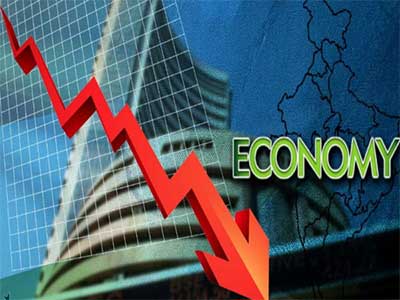Daily-current-affairs /
04 Nov 2020
Recession in Indonesia : Daily Current Affairs

Recession in Indonesia
Why in NEWS ?
- Indonesia slumps into first recession since 1998 Asian crisis.
About
- Indonesia has fallen into its first recession in 22 years as the coronavirus pandemic
continues to take it toll.
- South East Asia's biggest economy saw growth fall 3.49% in the third quarter of the
year, compared to the same period in 2019.
- Following a fall of 5.32% in the second quarter of 2020, this has pushed Indonesia
into a recession.
- The last time this happened was during the 1998 Asian financial crisis.
- Authorities in Indonesia have predicted that 3.5m people could lose their jobs due to
the coronavirus downturn.
- Indonesia has the highest infection rate in the region.
Major Reason : Tourist Trap
- While agriculture is a major component of its economy, Indonesia relies heavily on
tourist dollars.
- Millions of foreigners fly to Bali each year in search of deserted beaches, terraced
rice fields and sprawling Hindu temples.
- But their numbers have dropped sharply since Indonesia closed its borders to non-
residents, like other countries battling with the pandemic.
- The 3.49% fall in economic growth during July to September is slightly worse than
the 3% that economists had predicted.
- The capital city Jakarta went into a second semi-lockdown for four weeks starting in
mid-September with rising cases straining its health system.
- Government officials have pledged to accelerate spending to counter the pandemic's
impact and push Indonesia's gross domestic product (GDP) back into growth.
Government’s effort to counter recession : Accelerate Budget Spending & Labour laws
- President Joko Widodo has ordered government ministers to accelerate budget
spending for the rest of the year and start planning project procurements to
expedite spending early in 2021.
- The president recently signed a controversial law that aims to attract investment and
create jobs, but labour unions are challenging the law at the Constitutional Court and
have led to large, and at times violent, protests in recent weeks.
- The government has cut its economic forecasts several times and now expects GDP
to contract between 0.6 percent and 1.7 percent for the full year. The tightening of
social restrictions in Jakarta amid a fresh surge in virus cases has slowed the
recovery.
- Domestic demand, the mainstay of Indonesia’s economy, has yet to revive, with core
inflation continuing to weaken since March.
- The country has recorded trade surpluses in recent months as exports improve, but a
recent purchasing managers’ survey showed manufacturing continues to struggle.
- On a quarterly, non-seasonally adjusted basis, GDP grew 5.05 percent in the June-
September period but that was also slightly below expectations for 5.34 percent rise
in the Reuters poll.
- The government has pledged to accelerate spending to push GDP back into growth
this quarter, while Bank Indonesia Governor Perry Warjiyo has said the central bank
has further room to act after aggressively cutting interest rates and more than $30bn
of government bond purchases.
What is 'Recession' ?
- A recession is a macroeconomic term that refers to a significant decline in general
economic activity in a designated region.
- It had been typically recognized as two consecutive quarters of economic decline, as
reflected by GDP in conjunction with monthly indicators such as a rise in
unemployment.
- A common rule of thumb for recessions is two quarters of negative GDP growth.
- A recession is a period of decline in total output, income, employment and trade,
usually lasting six months to a year.
- However, the National Bureau of Economic Research (NBER), which officially
declares recessions in India, says the two consecutive quarters of decline in real GDP
are not how it is defined anymore.
- The NBER defines a recession as a significant decline in economic activity spread
across the economy, lasting more than a few months, normally visible in real GDP,
real income, employment, industrial production, and wholesale-retail sales.
- Recessions are visible in industrial production, employment, real income, and
wholesale-retail trade.
- The working definition of a recession is two consecutive quarters of negative
economic growth as measured by a country's gross domestic product (GDP),
although the National Bureau of Economic Research (NBER) does not necessarily
need to see this occur to call a recession, and uses more frequently reported
monthly data to make its decision, so quarterly declines in GDP do not always align
with the decision to declare a recession








